Phoebe Pember: Confederate Nurse
Phoebe Pember (right) was born Phoebe Levy in 1823 in Charleston, South Carolina. Her family was a prominent Southern Jewish family. Her father was a successful merchant, while her mother performed as a very prominent actress.
When war broke out, Phoebe's family was strongly supportive of the Confederate cause. In fact, her sister, Eugenia Phillips (wife of Unionist Alabama Congressman Philip Phillips), was arrested twice as a Confederate sympathizer.
Soon after the war began, Phoebe's husband, Thomas Pember, became ill, and died of tuberculosis. First, Phoebe headed south to live on her parents plantation near Marietta, Georgia; but soon she became unhappy and decided she needed to take a more active role in support of the Confederacy.
In 1862, she received and accepted an invitation to serve as matron of a military hospital in Richmond, Virginia. Little did she know what she was in for...
In December 1862, Phoebe Pember assumed her new position as matron of Chimborazo Hospital on the western outskirts of Richmond. Chimborazo is said to have been the largest military hospital in the world during the 1860s, and she was the first woman to hold any position there.
Her duties were to oversee the preparation and administration of the surgeon's prescriptions of medication and special diets. She also personally read for, wrote for, cared for, and otherwise helped as many wounded men as possible. During the course of her service, it is believed that roughly 15,000 men came under Phoebe Pember's care at Chimborazo. Here are some of her stories from that experience...
Caring for the Dying
Obviously, in dealing with so many wounded and diseased men, Phoebe Pember was bound to deal with death on a very regular basis. Following are two touching stories of the effort she put forth, even for those at death's door.
On one occasion, as she was visiting some newly arrived soldiers who had been wounded in a recent battle, one of them called for her attention. At first glance, it could be seen that he was very weak and would probably soon pass away. She stepped to his side to see what she could do for him in his final moments:
"He shook his head in negative to all offers of food or drink or suggestions of softer pillows and lighter covering.
'I want Perry,' was his only wish.
On inquiry I found that Perry was the friend and companion who marched by his side in the field and slept next to him in camp, but of whose whereabouts I was ignorant. Armed with a requisition from our surgeon, I sought him among the sick and wounded at all the other hospitals. I found him at Camp Jackson, put him in my ambulance, and on arrival at my own hospital found my patient had dropped asleep. A bed was brought and placed at his side, and Perry, only slightly wounded, laid upon it."
...when the young soldier awoke, he was overjoyed to see his old friend, and got to spend the last few minutes of his life with his army buddy at his side, thanks to the quick and selfless work of Phoebe Pember.
Another time, there was a young man who had suffered a badly broken bone in his upper thigh, but he was healing and expected to make a recovery. One night, he rolled over in bed and screamed.
Phoebe came running and found that a bone splinter had poked out through his skin, and the wound was jetting blood (apparently an artery had been severed). Phoebe immediately pressed on the wound with her finger and was able to cut off the flow of blood until a surgeon arrived.
Unfortunately, when the surgeon arrived, he found that he could not locate the severed artery, and finally told Phoebe that there was no hope. She was left to break the news to the wounded man. This task was very difficult for her, but finally:
"It was done at last and the verdict received patiently and courageously, some directions given by which his mother would be informed of his death, and then he turned his questioning eyes upon my face.
'How long can I live?'
'Only as long as I keep my finger upon this artery.' A pause ensued. God alone knew what thoughts hurried through that heart and brain, called so unexpectedly from all earthly hopes and ties. He broke the silence at last.
'You can let go.'
But I could not. Not if my own life had trembled in the balance. Hot tears rushed to my eyes, a surging sound to my ears, and a deathly coldness to my lips. The pang of obeying him was spared me, and for the first and last time during the trials that surrounded me for four years, I fainted away."
This story demonstrates once more how deeply Phoebe Pember cared for those who came into her care, but that is not the only thing that made her a successful matron at Chimborazo...
Taking Command of Chimborazo
As fighting went on near Richmond one day, many of the people of the city, including many of the surgeons, went out to watch the battle. Because of this, the hospitals were largely unprepared when the wounded began to be brought in. As the scene unfolded before her, Phoebe Pember decided to take charge:
"...vehicles of all kinds crowded in, from a wheelbarrow to a stretcher, and yet no orders had been sent me to prepare for the wounded. Few surgeons had remained in the hospital; the proximity to the field tempting them to join the ambulance committee, or ride to the scene of action; and the officer of the day, left in charge, naturally objected to my receiving a large body of suffering men with no arrangements made for their comfort, and but few in attendance. I was preparing to leave for my home at the Secretary of the Navy, where I returned every night, when the pitiful sight of the wounded in ambulances, furniture wagons, carts, carriages, and every kind of vehicle that could be impressed detained me. To keep them unattended to, while being driven from one full hospital to another, entailed unnecessary suffering, and the agonized outcry of a desperately wounded man to 'take him in, for God's sake, or kill him,' decided me to countermand the order of the surgeon in charge that 'they must be taken elsewhere as we had no accommodations prepared.'
He ... tried to reason with me, saying our wards were full, except a few vacant and unused ones, which our requisitions had failed to furnish with proper bedding and blankets. Besides, a large number of the surgeons were absent, and the few left would not be able to attend to all the wounds at that late hour of the night. I proposed in reply that the convalescent men should be placed on the floor on blankets, or bed-sacks filled with straw, and the wounded take their place, and, purposely construing his silence into consent, gave the necessary orders, eagerly offering my services to dress simple wounds, and extolling the strength of my nerves. He let me have my way (may his ways be of pleasantness and his paths of peace), and so, giving Miss G. orders to make an unlimited supply of coffee, tea, and stimulants, armed with lint, bandages, castile soap, and a basin of warm water, I made my first essays in the surgical line ... From bed to bed till long past midnight, the work continued."
While this episode shows her strength in trying circumstances, it is not the only time Phoebe had to put her foot down...
The Whiskey Barrel and the End of the War
When the Confederates were driven from Richmond, and the ruined city (left) occupied by Union troops, Phoebe Pember's duties did not come to an end...
...her duties only became more dangerous!
Soon after she took the position of matron, she found that the medicinal whiskey was largely being drunk up by the nurses and surgeons instead of being given to the soldiers. Therefore, she decided to lock the whiskey up in her quarters at the hospital to ensure that it was not used inappropriately.
This was, of course, a very unpopular decision, and led much of the hospital staff to seek retribution. As a result, she later wrote that she experienced, "the thousand miseries of my position."
Phoebe did not give in, and finally everyone got used to the way that things were handled under the new matron. When Richmond was evacuated, all military authority was gone, including the hospital guards. In fact, even patients who had been severely bed-ridden seemed to suddenly disappear:
"I walked through my wards and found them comparatively empty. Every man who could crawl had tried to escape a Northern prison. Beds in which paralyzed, rheumatic, and helpless patients had laid for months were empty. The miracles of the New Testament had been re-enacted. The lame, the halt, and the blind had been cured."
With the guards gone, some of Phoebe's old enemies came back for their whiskey...
As she was finishing up her duties the evening the city was abandoned, suddenly her door was kicked down, and in burst a group of rough men who had worked around the hospital, collectively known as "hospital rats." A new, thirty-gallon barrel of whiskey had been delivered only days before, and they intended to take it. Their leader spoke:
'We have come for the whiskey!'
'You cannot, and shall not have it.'
'It does not belong to you.'
'It is in my charge, and I intend to keep it. Go out of my pantry; you are all drunk.
'Boys!' he said, 'pick up that barrel and carry it down the hill. I will attend to her!' "
The leader, a certain Mr. Wilson, had not realized how much power Phoebe Pember still held. The men who were following him were not willing to disobey a direct order from the matron of the hospital.
Undaunted, Mr. Wilson headed for the barrel himself, but Phoebe stepped in his way. Wilson swore at her, and grabbing her arm, moved to throw her out of his way. Suddenly, he heard the distinctive sound of a pistol being cocked:
"...that sharp click, a sound so significant and so different from any other, struck upon his ear, and sent him back amidst his friends, pale and shaken.
'You had better leave,' I said, 'for if one bullet is lost, there are five more ready, and the room is too small for even a woman to miss six times.' "
Despite threats to return, the men quickly fled the scene, and Phoebe Pember secured her domain by nailing a flour barrel lid across her damaged door. She then sat on her whiskey barrel, and slept, undisturbed, until dawn.
The Union troops soon occupied the city and began to use Chimborazo for their wounded as well. Phoebe stayed on tending to the remaining Confederate wounded for awhile, but eventually she made her way back home to Marietta, Georgia.
After the war, she wrote her memoirs, traveled extensively, and eventually passed away in 1913, in Pittsburgh, Pennsylvania.
Phoebe Pember served selflessly during the war, and had many interesting and exciting experiences. Without a doubt, she should be remembered in any discussion of great Civil War women.
American Civil War Story - Home
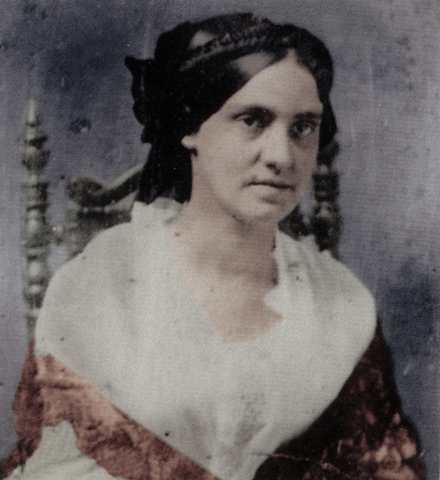

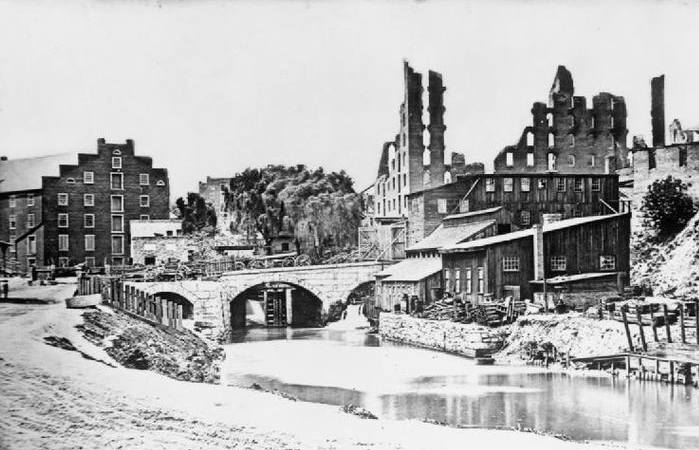
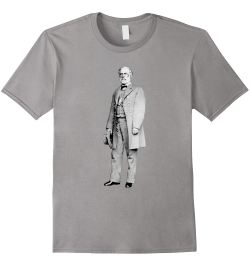
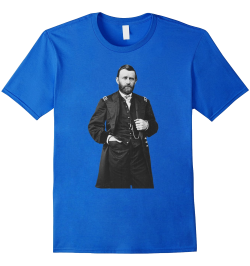


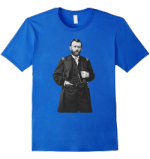
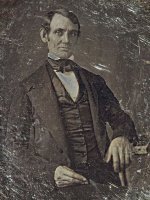
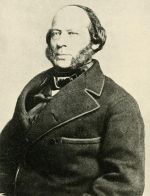
New! Comments
Have your say about what you just read! Leave me a comment in the box below.